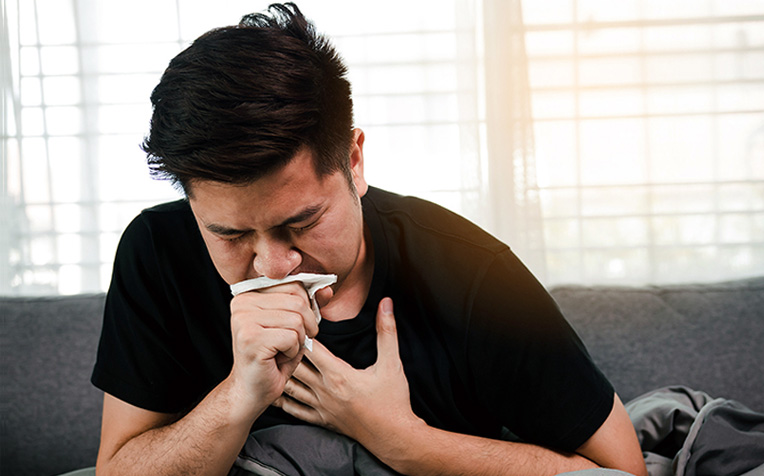
18 November 2020 marks World COPD (Chronic Obstructive Pulmonary Disease) Day.
Clinical Associate Professor Ong Thun How, Senior Consultant from the
Department of Respiratory and Critical Care Medicine at
Singapore General Hospital (SGH), a member of the
SingHealth group, shares more about the condition.
Understanding COPD
COPD, short for Chronic Obstructive Pulmonary Disease, refers to lung function which has been damaged, usually caused by heavy smoking, in someone who is genetically susceptible to the disease. There are two forms of COPD:
1. Chronic bronchitis
Chronic bronchitis is a condition in which the lining of the two bronchial tubes (lung airways) becomes inflamed and thickens. Mucus forms, making it difficult for the airways to carry air into the lungs.
2. Emphysema
Emphysema is the failure of the tiny air sacs or alveoli to oxygenate the lungs, resulting in shortness of breath. This happens when the air sacs, found in each lobe of the lung, are damaged and lose their elasticity to expand and contract.
"Many patients have overlapping features of both chronic bronchitis and emphysema. In both cases, the lung damage results in narrowing of the airways, thus restricting the flow of air in and out of the lungs," explains Clin Assoc Prof Ong.
Read more: Why non-smoking Asian women are at risk of lung cancer
Symptoms of COPD
COPD is an irreversible disease which becomes progressively worse if left untreated. People with very severe COPD feel breathless even at rest and may suffer lung failure eventually. Common symptoms of COPD include:
Chronic cough
Phlegm production
Chronic shortness of breath or shortness of breath with mild exertion
Wheezing
Chest tightness
Bluish coloration of the skin due to lack of oxygen
Dizziness
Fatigue
Ankle, feet, and leg swelling
Unintentional weight loss
Respiratory infections
Read more:
Asthma - Effective tips to manage it
When COPD gets severe
During advanced stages of the disease, COPD can bring about severe weight loss. This can be caused by the person with the disease:
Burning up to 5 or 10 times more energy than a healthy person when performing even basic physical activities like dressing and washing oneself
Feeling too depressed to eat as a result of the debilitating effects of COPD on everyday life
“Malnutrition and weight loss are common complications of COPD so it is important for those with the condition to maintain a healthy body weight to improve their prognosis and survival,” shares Clin Assoc Prof Ong.
Read more:
Treatment for COPD and other risk factors to be aware of
--
Articles on
HealthXchange.sg are meant for informational purposes only and cannot replace professional surgical, medical or health advice, examination, diagnosis or treatment. Photo courtesy of iStock.